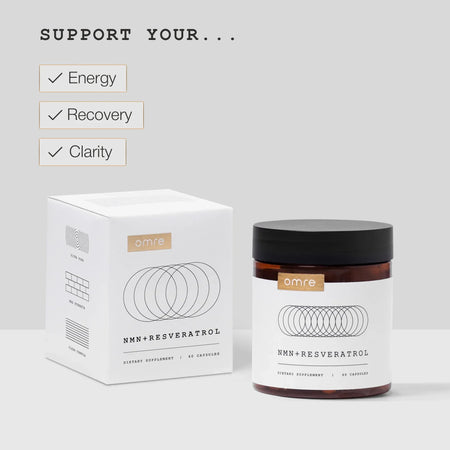Alcohol consumption is known to accelerate the aging process both internally and externally. From premature wrinkles to cellular damage, the effects of alcohol on aging are well-documented. However, many people wonder if these effects can be reversed once they reduce or eliminate alcohol from their lifestyle. This comprehensive guide explores the science behind alcohol-induced aging and the potential for recovery.
Can You Reverse Aging from Alcohol?
Yes, you can partially reverse some aging effects caused by alcohol consumption. When you stop or significantly reduce alcohol intake, your body begins a healing process that can improve skin elasticity, reduce inflammation, restore proper organ function, and repair cellular damage. While some changes like severe liver damage may be permanent, many aging symptoms can improve within weeks to months after cessation. The extent of reversal depends on factors including age, overall health, duration and intensity of alcohol use, and post-cessation lifestyle choices.
How Alcohol Accelerates the Aging Process
Before discussing reversal, it's important to understand how alcohol contributes to premature aging:
Dehydration and Skin Effects
Alcohol is a powerful diuretic that depletes the body's water reserves, leading to dehydrated skin that appears dull, less elastic, and more prone to wrinkles. It also dilates blood vessels, potentially causing permanent redness and broken capillaries, especially around the nose and cheeks.
Nutritional Deficiencies
Regular alcohol consumption interferes with nutrient absorption and processing, particularly vitamins A, B complex, C, D, E, and minerals like zinc and iron. These deficiencies manifest as dull skin, hair loss, brittle nails, and reduced immune function – all hallmarks of premature aging.
Oxidative Stress and Inflammation
Alcohol metabolism generates harmful free radicals that damage cells throughout the body. This oxidative stress accelerates aging at the cellular level, while also triggering inflammatory responses that break down collagen and elastin – the proteins responsible for skin's youthful appearance.
Sleep Disruption
While alcohol may help some fall asleep initially, it severely disrupts sleep quality and prevents reaching restorative deep sleep phases. This chronic sleep deprivation accelerates aging by reducing the body's natural repair processes and increasing stress hormones.
Liver Damage
The liver bears the brunt of alcohol processing, and chronic consumption can lead to fatty liver disease, hepatitis, and eventually cirrhosis. As liver function declines, toxin removal becomes compromised, further accelerating aging throughout the body.
Timeline for Reversing Alcohol-Related Aging
When alcohol consumption stops or significantly decreases, the body begins a remarkable recovery process:
24-72 Hours
The initial detoxification begins as alcohol leaves your system. Hydration levels start to normalize, and blood sugar stabilizes. Some individuals may experience withdrawal symptoms during this period, which can be severe for heavy drinkers.
1 Week
Sleep quality begins to improve, which enhances cellular repair processes. Initial improvements in skin hydration may become noticeable, with reduced puffiness and improved complexion. Energy levels typically increase as the body recovers from alcohol's depressive effects.
1 Month
Significant skin improvements often appear, including better hydration, reduced redness, and diminished under-eye circles. Blood pressure may normalize, and cognitive function often improves with better concentration and memory. Weight loss may occur as both caloric intake decreases and metabolism improves.
3-6 Months
Liver regeneration advances significantly, with fatty liver often reversing completely in the absence of cirrhosis. Collagen production increases, improving skin elasticity and reducing fine lines. Immune function strengthens, reducing susceptibility to illnesses that accelerate aging.
1 Year and Beyond
Long-term abstinence or moderate consumption allows for more profound healing. Cardiovascular health improves with normalized blood pressure and reduced heart inflammation. Cancer risk begins to decrease compared to continued heavy drinking. Cognitive function continues to recover, with improved memory, focus, and reduced risk of alcohol-related brain damage.
Strategies to Enhance Recovery from Alcohol-Induced Aging
While reducing or eliminating alcohol consumption is the primary step, several complementary approaches can accelerate the reversal of alcohol-related aging:
Optimal Hydration
Increasing water intake helps flush toxins, rehydrate tissues, and support all cellular functions. Aim for at least 8-10 glasses daily, with additional electrolytes if needed during initial recovery phases.
Nutrition-Focused Diet
A diet rich in antioxidants, proteins, and essential nutrients can accelerate repair processes. Focus on:
- Antioxidant-rich foods like berries, dark leafy greens, and colorful vegetables
- Complete proteins that provide amino acids for tissue repair
- Healthy fats from sources like avocados, olive oil, and fatty fish
- Foods supporting liver health such as cruciferous vegetables, garlic, and turmeric
Targeted Supplementation
Certain supplements may help address nutritional deficiencies common in those recovering from alcohol use:
- B-complex vitamins, particularly thiamine (B1), which is often severely depleted
- Vitamin C and E for antioxidant support
- Zinc and selenium for immune function and skin health
- Milk thistle and N-acetyl cysteine (NAC) for liver support
Always consult healthcare providers before beginning any supplement regimen, particularly during recovery.
Regular Exercise
Physical activity accelerates cellular rejuvenation through multiple mechanisms:
- Improving circulation and oxygen delivery to tissues
- Enhancing mitochondrial function and energy production
- Promoting natural detoxification through sweat and increased metabolism
- Reducing stress hormones that contribute to aging
Even moderate activity like walking for 30 minutes daily can provide significant benefits.
Stress Management
Chronic stress accelerates aging and can trigger alcohol cravings during recovery. Effective stress management might include:
- Mindfulness meditation or breathwork
- Regular sleep hygiene practices
- Social connection and support systems
- Professional mental health support when needed
Skincare Optimization
Targeted skincare can accelerate the visible reversal of alcohol-related skin aging:
- Hydrating serums containing hyaluronic acid
- Vitamin C products for collagen stimulation and brightening
- Retinoids to accelerate cell turnover
- Peptide-based products that support skin structure
- Consistent sun protection to prevent further damage
When to Seek Professional Help
While many alcohol-related aging effects can be addressed through lifestyle changes, certain situations warrant professional intervention:
Medical Support for Alcohol Reduction
Heavy drinkers should not attempt to quit suddenly without medical supervision, as severe withdrawal can be life-threatening. Healthcare providers can help create safe tapering plans or provide medications that ease withdrawal symptoms.
Dermatological Interventions
For significant skin damage, dermatologists can offer treatments that accelerate recovery:
- Chemical peels to address hyperpigmentation and texture issues
- Laser therapy for broken capillaries and redness
- Microneedling to stimulate collagen production
- Specialized treatments for conditions like rosacea that may have been exacerbated by alcohol
Liver Assessment and Support
Those with a history of heavy drinking should undergo liver function testing. Hepatologists can provide specialized care for those with significant liver damage, potentially including medications that reduce inflammation and slow or reverse fibrosis.
Nutritional Therapy
Registered dietitians with experience in addiction recovery can develop personalized nutrition plans that address specific deficiencies and support organ repair.
Mental Health Support
The psychological aspects of alcohol reduction cannot be overlooked. Therapists, counselors, and support groups provide critical emotional support during this transition, which indirectly supports physical recovery as well.
The Science of Cellular Recovery
Recent research provides fascinating insights into how cells recover after alcohol exposure ceases:
Autophagy Activation
Alcohol suppresses autophagy – the cellular "housekeeping" process that removes damaged components. When drinking stops, autophagy reactivates, clearing cellular debris and supporting rejuvenation. This process is enhanced by intermittent fasting and certain nutrients like resveratrol.
Telomere Stabilization
Telomeres, the protective caps on chromosomes that shorten with age, degrade more rapidly with alcohol consumption. Research suggests that eliminating alcohol helps stabilize telomere length, potentially slowing biological aging at the genetic level.
Mitochondrial Regeneration
Alcohol damages mitochondria, the cellular powerhouses responsible for energy production. After cessation, damaged mitochondria are recycled through mitophagy, and new, healthier mitochondria develop – improving cellular energy and function.
Epigenetic Reversal
Alcohol alters gene expression through epigenetic modifications. Emerging research indicates many of these changes begin to reverse after cessation, potentially restoring more youthful genetic function.
Long-Term Outlook and Realistic Expectations
While the body's capacity for recovery is remarkable, setting realistic expectations is important:
Factors Affecting Recovery Potential
Several variables influence how completely one can reverse alcohol-related aging:
- Age at cessation (younger individuals typically show more complete recovery)
- Duration and intensity of alcohol use
- Genetic factors that influence repair mechanisms
- Presence of other health conditions
- Overall lifestyle quality after cessation
Permanent vs. Reversible Changes
Some alcohol-induced changes may not fully reverse:
- Advanced liver cirrhosis with extensive scarring
- Certain types of neurological damage
- Deep facial capillary damage
- Advanced pancreatic tissue changes
However, even in these cases, stopping alcohol consumption prevents further damage and often allows for significant functional improvement.
The Psychological Journey
The process of reversing alcohol-related aging involves psychological aspects that shouldn't be overlooked. Many people report improved self-image, confidence, and mental clarity contribute significantly to their perception of aging reversal. This positive feedback loop often motivates continued healthy choices.
Conclusion: The Rejuvenation Potential After Alcohol
The human body demonstrates remarkable resilience when given the opportunity to heal from alcohol-related damage. While complete reversal of all aging effects may not be possible in every case, significant improvements in appearance, organ function, and cellular health are achievable for most people who reduce or eliminate alcohol consumption.
The journey toward reversing alcohol-induced aging extends beyond merely abstaining from drinks—it encompasses a holistic approach to health that includes nutrition, hydration, movement, stress management, and often social support. For those concerned about alcohol's aging effects, the evidence is clear: it's never too late to make changes that allow your body to begin its natural healing processes.
Whether your motivation is appearance, longevity, cognitive function, or overall well-being, reducing alcohol consumption stands as one of the most effective anti-aging interventions available—one that requires no expensive products or procedures, just the commitment to give your body the alcohol-free environment in which it can thrive and rejuvenate.
Stay Sharp, Stay Energized, Stay Ahead
Aging doesn’t have to slow you down. NMN + Resveratrol is your key to sustained energy, sharper focus, and long-term vitality. Whether you're a high performer pushing boundaries, a biohacker optimizing every aspect of life, or a parent looking to keep up with the demands of daily life, this powerful combination fuels your body at the cellular level.
Backed by science and trusted by those who refuse to settle for average aging, NMN + Resveratrol helps you stay ahead—today, tomorrow, and for years to come.
Experience the benefits for yourself. Start your journey to better aging now!
Try NMN + Resveratrol Today!
NMN + RESVERATROL
Cellular NAD+ booster with ultra‑pure NMN and Resveratrol, at research‑backed doses.*
Read more:


